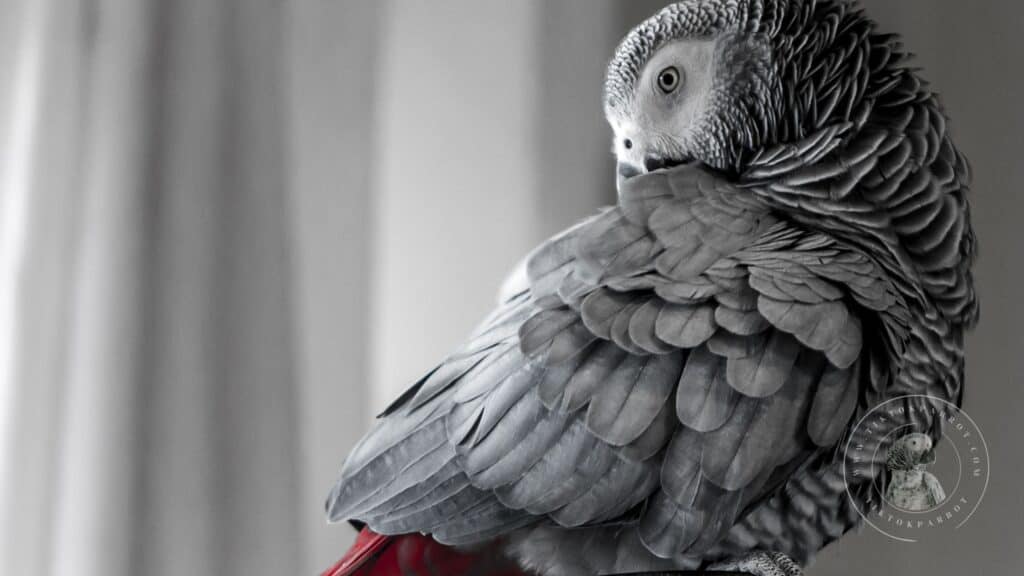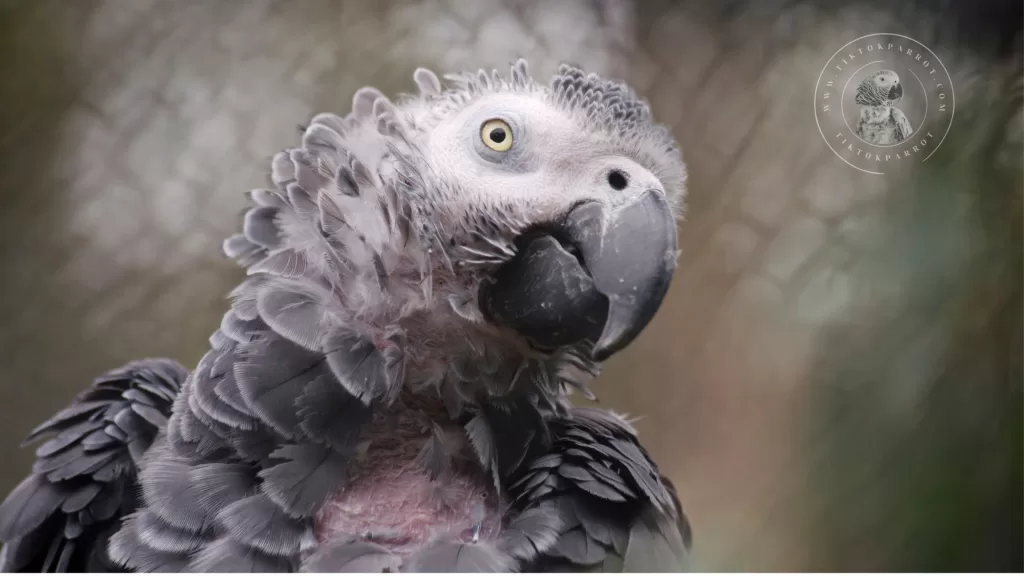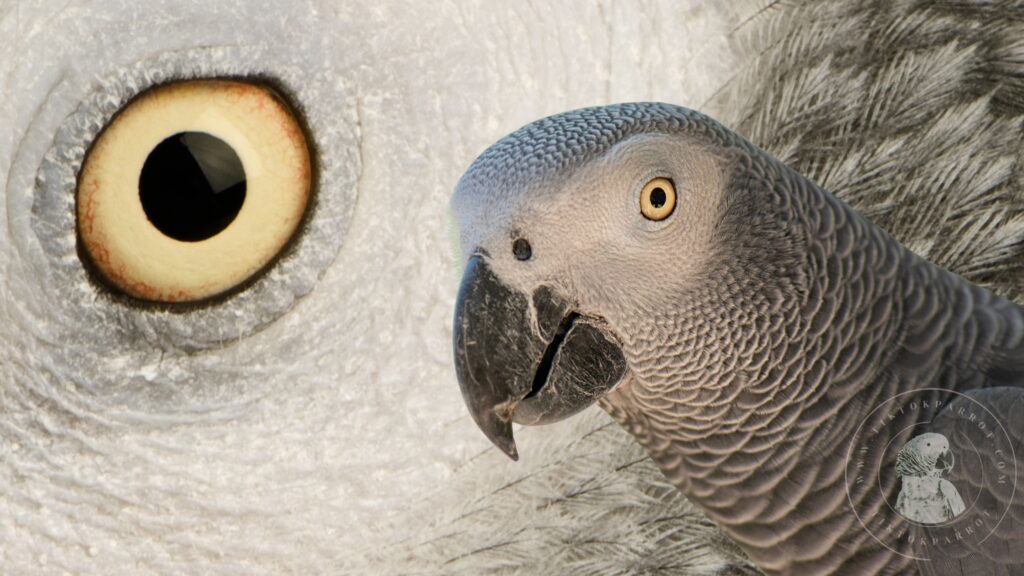Today, we’re going to talk about something that might sound like a mouthful – calcium metabolism in African Grey Parrots. But trust me, it’s a topic that’s worth squawking about!
You see, calcium is like the ultimate superhero sidekick for our feathered friends. It’s essential for building strong bones, eggshell production, and even nerve function. But, just like how too much of a good thing can be bad, an imbalance in calcium metabolism can lead to some serious health issues.
Discover the crucial role of calcium metabolism in African Grey Parrots’ health! Learn how to maintain optimal levels, prevent deficiencies, and ensure strong bones and happy feathers. Read now and give your feathered friend the best life possible!
As we all know African Grey parrots are the divas of the bird world. They’re intelligent, sassy, and have a talent for throwing epic tantrums that would put a toddler to shame. But here’s the thing, sometimes those dramatic displays might not be just about a missing cashew or an unsung lullaby. They could be a sign of a deeper health issue – a calcium deficiency!
Now, before you panic and picture your Grey reenacting Shakespearean tragedies over a lack of cheese (although, that would be mildly entertaining).
So, let’s dive into the wonderful world of calcium metabolism and explore how it affects our beloved African Greys.
What’s the big deal about calcium?

Think of calcium as the invisible superhero keeping your Grey’s bones strong and their movements smooth. It’s crucial for everything from building sturdy skeletons to ensuring proper muscle function and nerve transmission. But unlike the dramatic flair they display for other things, African Greys often struggle to efficiently absorb and utilize calcium from their diet.
Calcium is the most abundant mineral in the body, making up about 1.5% of an African Grey’s total body weight. It’s crucial for:
- Building and maintaining strong bones and beaks
- Regulating heartbeat and muscle contractions
- Supporting nerve function and transmission
- Producing eggshells (for our female friends)
The calcium metabolism process: A simplified explanation
Imagine a delicate balancing act between three main players: diet, gut absorption, and hormonal regulation.
- Diet: African Greys need a balanced diet rich in calcium sources like dark leafy greens, fruits, and calcium-fortified pellets.
- Gut absorption: The gut absorbs calcium, which is then transported to the bloodstream.
- Hormonal regulation: Hormones like vitamin D3, parathyroid hormone (PTH), and calcitonin regulate calcium levels in the blood.
Why the Calcium Struggle? Here’s the (Not-So-Funny) Part

Unlike most birds, African Greys can be a bit…well, picky eaters when it comes to mobilizing calcium from their bones. Imagine your Grey as a celebrity with a personal chef. They might have a beautifully stocked pantry (their food bowl), but if their chef (their body) isn’t great at preparing the ingredients (calcium), then they’re not getting the nutrients they need.
This can lead to a condition called hypocalcemic syndrome, which is basically a fancy way of saying your Grey doesn’t have enough calcium in their bloodstream. The symptoms can be pretty dramatic, just like your feathered friend themselves. We’re talking weakness, tremors, seizures, and even the dreaded falling-off-the-perch routine (not exactly graceful for a bird known for its elegance).
When calcium metabolism goes awry…
An imbalance in calcium metabolism can lead to:
- Hypocalcemia (low calcium levels): Weak bones, muscle tremors, and seizures
- Hypercalcemia (high calcium levels): Kidney damage, lethargy, and anorexia
Factors that affect calcium metabolism
- Diet: Inadequate calcium intake or excessive phosphorus consumption
- Age: Young, growing parrots require more calcium
- Sex: Female parrots need more calcium for egg production
- Health conditions: Kidney disease, vitamin D3 deficiency, or hormonal imbalances
Tips for maintaining optimal calcium metabolism
- Provide a balanced diet: Include calcium-rich foods and limit phosphorus-rich treats
- Supplement wisely: Consult your avian vet about calcium and vitamin D3 supplements
- Monitor your parrot’s health: Regular check-ups and blood tests can detect imbalances early on
Turning Your Grey from Drama Queen to Calcium Champion

So, how do you transform your calcium-deficient diva into a happy, healthy bird? Don’t worry, there’s hope! Here are some tips to ensure your Grey gets the calcium they need:
- Diet Diversity is Key: Ditch the seed-only diet! Seeds are low in calcium and high in phosphorus, which can actually hinder calcium absorption. Offer a balanced mix of high-quality pellets formulated for African Greys, chopped fresh vegetables (think dark leafy greens!), and occasional healthy treats like nuts or cooked egg (with the shell, crushed!).
- Sun Salutations (For Your Bird, Not You…Probably): Vitamin D helps the body absorb calcium, so provide your Grey with access to natural, filtered sunlight whenever possible. Think of it as a daily dose of sunshine therapy for your feathered friend.
- Calcium Supplements (But Talk to Your Vet First!): In some cases, your avian vet might recommend a calcium supplement. However, it’s important to consult them before adding anything new to your Grey’s diet to avoid imbalances in other nutrients.
The Bottom Line: A Healthy Grey is a Happy Grey
Calcium metabolism might seem like a complex topic, but it’s essential for our African Greys’ overall health and well-being. By understanding the importance of calcium and how to maintain optimal levels, we can give our feathered friends the best chance at a happy, healthy life.
Remember, a happy Grey is a Grey with less reason to throw a tantrum (although, let’s be honest, they might still find reasons – they are divas after all!).
Do you have any experience with African Grey parrots and calcium deficiencies? Share your stories and tips in the comments below!
If you liked this blog, please share it with your family and friends who might also find it helpful. If you love African Greys, join our community of Grey owners! You can meet other owners, share tips and learn from each other.
You might like to read these as well 🙂
Top 7 Superfoods for Your African Grey Parrot
The Importance of Calcium in Our African Greys’ Diets
Avocado Alert: What to Do If Your Parrot Eats the Forbidden Fruit?
African Grey Parrot Watery Poop: the Mystery and Finding Solutions
Skin and Feather Care for African Greys
For more useful content about African grey parrots, you can subscribe my site with your email to get notification upon publishing a new blog, the subscribe box you can see on the right side of this page. Also if you get an alert on your web browser while browsing my site, allow it and that will also give you an alert whenever I publish a new blog. 🙂
Stay safe and much love!



